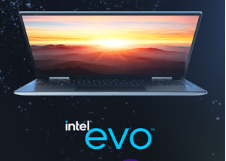Be taught whether or not Jupyter Pocket book or Google Colab could be higher on your information science wants on this in-depth characteristic comparability.

Creating and organizing computation paperwork is a necessary a part of programming and information sciences. Most individuals flip to one in all two fashionable instruments — Jupyter Pocket book and Google Colab — to assist them handle their information.
SEE: Function comparability: Time monitoring software program and techniques (TechRepublic Premium)
Bounce to:
What’s Jupyter Pocket book?
Jupyter is a free, open-source, web-based interactive computing platform that was spun off of IPython; Jupyter Pocket book is an internet utility that permits customers to create and share computation paperwork with one another.
What’s Google Colab?
Google Colaboratory is a freemium instrument supplied by Google Analysis that permits customers to put in writing and execute Python code of their internet browsers. Colab is definitely based mostly on the Jupyter open supply, and primarily lets you create and share computation information with out having to obtain or set up something.
Jupyter Pocket book vs. Google Colab: Function comparability
| Function | Jupyter Pocket book | Google Colab |
|---|---|---|
| Cloud-based | No | Sure |
| File syncing | No | Sure |
| File sharing | No | Sure |
| Library set up | Sure | No |
| File view with out set up | No | Sure |
Head-to-head comparability: Jupyter Pocket book vs. Google Colab
Cloud-based
Google Colab’s main differentiator from Jupyter Pocket book is that it’s cloud-based and Jupyter will not be. Which means for those who work in Google Collab, you should not have to fret about downloading and putting in something to your {hardware}. It additionally means that you may relaxation simple realizing that your work will autosave and backup to the cloud with out you having to do something.
Google Colab is nice for individuals who must work throughout a number of units — comparable to one laptop at residence and one at work, or a laptop computer and a pill — because it syncs seamlessly throughout units.
In distinction, Jupyter Pocket book is run in your native machine, and information are saved to your onerous disk. Jupyter does supply an autosaving interval (which you’ll be able to change) nevertheless it doesn’t again as much as a cloud, so if one thing occurs to your machine, you’re out of luck. Jupyter can’t sync or share your information throughout units with no third-party submitting sharing service comparable to DropBox or GitHub.
Collaboration
We couldn’t speak about Jupyter Pocket book vs. Google Colab with out mentioning collaboration. Because the identify suggests, Google Colab is constructed to make it simple to share your notebooks with anybody — even when they’re not a knowledge scientists. Different folks can view your pocket book with out having to obtain any software program, which is a giant benefit for those who often work with non-techies who want to have the ability to view the information.
Alternatively, anybody else might want to have Jupyter Pocket book put in on their system if you wish to share their notebooks with them. This received’t be a hindrance for those who solely work with builders, information scientists and different tech individuals who will have already got Jupyter put in, however for those who work on a extra various workforce, then you definately may need to take into account Google Colab because it makes it simpler to share information.
Library set up
Since Google Colab is cloud-based, it comes preinstalled with nearly each library you could possibly want within the cloud. Which means you don’t need to separate treasured disk house or time to obtain the libraries manually. The free model additionally comes with a sure degree of GPU, reminiscence and run time, which might fluctuate. In the event you want extra capability, you’ll be able to improve to one of many paid plans. Google doesn’t disclose limits for any of its Colab plans as a result of want for flexibility.
With Jupyter Pocket book, you have to to put in every library that you simply need to use onto your system utilizing pip or one other package deal supervisor. Additionally, you will be restricted by your laptop’s obtainable RAM, disk house, GPU and CPU. That being stated, having the notebooks saved in your {hardware} vs. hosted in a third-party cloud is safer, so the guide library set up can really be a plus for extra delicate information.
Selecting between Jupyter Pocket book and Google Colab
Each Jupyter Pocket book and Google Colab stands out as the proper selection specifically circumstances. Google Colab is a superb selection for the entry-level developer or the non-programmer who desires to get began quick with out having to put in something. It’s additionally a terrific concept for anybody who must share pocket book information with individuals who received’t have the right software program put in on their units. Lastly, Google Colab is a should for anybody trying to again their work as much as the cloud and to sync their notebooks throughout a number of units — however the ease of cloud sharing means decreased information safety.
In the meantime, Jupyter is a more sensible choice for delicate information that have to be stored off the cloud. Putting in the notebooks by yourself {hardware} additionally implies that you by no means have to fret about your GPU or runtimes getting throttled, which might occur generally on the Colab free accounts.

